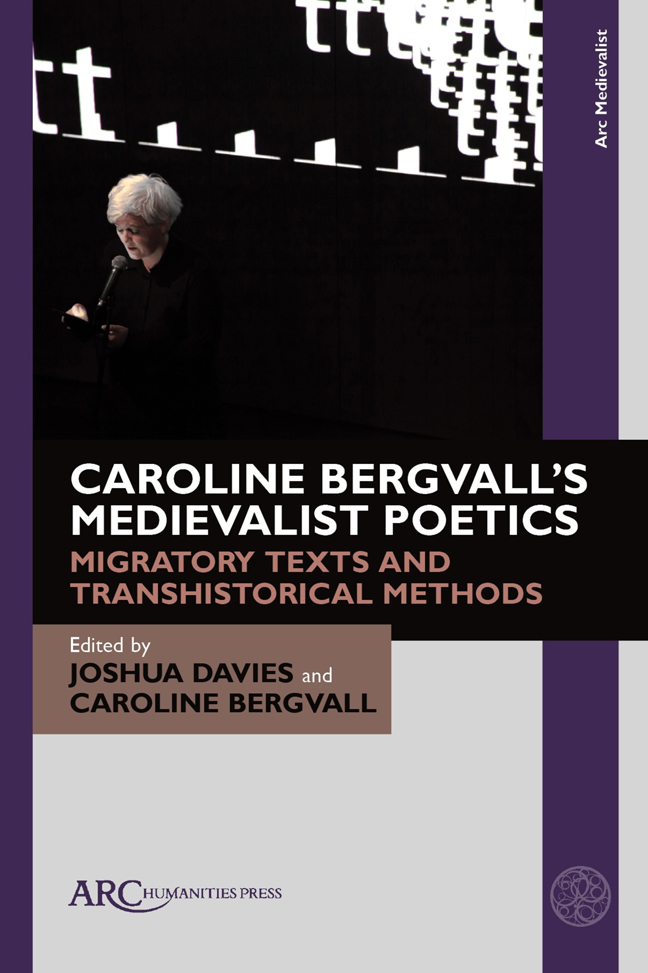Afterword
Published online by Cambridge University Press: 20 February 2024
Summary
CAROLINE BERGVALL’S WORK thinks a lot about the making of community, and so it is apt that this book should have succeeded in doing just that: in drawing lines of connection between medieval studies and contemporary poetics, among poets and translators, across languages and modes, between people who meet and find community in her writing and practice. What binds the whole together is both a deep engagement with Bergvall’s work—with Meddle English, Drift, Alisoun Sings, on the page and as performance—and shared commitments coming out of and made possible by that engagement: to queer affiliation, multilingual practice, and the politics of solidarity. There is also a confiding, personal quality to much of the writing here, and a willingness to take risks. In a sense, how could it be otherwise? The pandemic has made inescapable what should always have been obvious: the relationship between our lives and those of the people around us, our material living conditions and the work that we do. But it is also largely a response to Bergvall’s work, which insists on the locatedness of ideas and creativity, the significance of how we speak and where we speak from, the relevance of our differences as germane to our coming-together, and on the indivisibility of art from praxis. It is out of our own unique perspectives and locations, Bergvall insists, that we can make community. That is the pressing task, and one worth taking risks for.
I’m writing this in Mile End, in the East End of London, in the Autumn of 2022. The campus of Queen Mary University of London is built around what remains of the Novo Cemetery, a Sephardic Jewish graveyard opened in 1733. Walking past the Cemetery on the way to teach, I read gravestones in Portuguese, Hebrew, and English. The layered histories of migration are evident all around us in the East End: of Huguenot, Irish, Jewish, Chinese, Somali, Bangladeshi people who have arrived over the centuries and made the area their home. This is no benign history but one of conflict, struggle, and solidarity: of strikes, antifascist organising, housing activism. The East End was the site of the first women’s strike in Britain, the Match Girls’ strike of 1888.
- Type
- Chapter
- Information
- Caroline Bergvall's Medievalist PoeticsMigratory Texts and Transhistorical Methods, pp. 221 - 226Publisher: Amsterdam University PressPrint publication year: 2023



